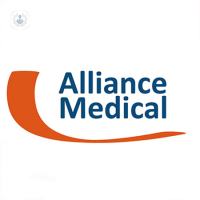What is nocturnal enuresis in children?
Nocturnal enuresis is the medical term for what is commonly known as bedwetting. It is quite common during childhood (10 per cent in 7 year-olds) and is twice as common in boys. There is often a positive family history.
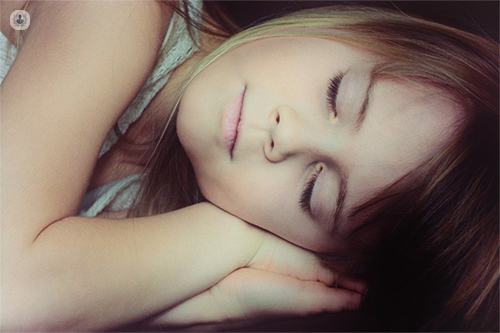
Prognosis of nocturnal enuresis
The outlook for nocturnal enuresis is excellent and spontaneous resolution occurs in around 97 to 99 per cent of patients by their teenage years.
However, it can be a major problem for affected children who may feel embarrassed or helpless, as well being teased or bullied by their peers.
Symptoms of nocturnal enuresis in children
Some children wet the bed every night while others are less affected with fewer wet nights and less severe leakage.
Causes of nocturnal enuresis
Bedwetting is not caused only by drinking too many liquids before going to sleep, nor by a mental of behaviour problem. A frequent cause of nocturnal enuresis is that the amount of urine produced at night is bigger than what your bladder can hold. Another cause might be that the child does not wake up when the bladder is full and the child sleeps through the accident. Sometimes the bladder can be overactive and the child might also have daytime symptoms.
- Some children with a urinary tract infection might start wetting the bed at night.
- A dipstick of urine needs to be done to rule out diabetes.
- Stress and anxiety also can be contributing factors.
Can enuresis in children be prevented?
It is not possible to prevent enuresis in children before it happens, or to guess when exactly it will occur, but there are some risk factors that can develop an enuresis, such as stress, anxiety, or ADHD that is not treated properly.
How is nocturnal ensuresis in children treated?
Regarding treatment for nocturnal ensuresis, the first step is to visit a specialist in paediatric urology or a paediatrician to rule out any physiological causes and other problems.
Parents should be encouraged to adopt a positive attitude to treatment of bedwetting.
The child should drink plenty throughout the day and stop drinking 1 to 2 hours before bed, as well as going to bed with an empty bladder. Medication such as Desmopressin can work when the kidneys produce too much urine at night. A combination with Oxybutynin might be necessary in children who also have daytime symptoms such as urgency and frequency.
Some children do well with an enuresis alarm.
Some children might benefit to see a specialist in child psychology if the child is suffering from stress or anxiety causing enuresis.
11-13-2012 04-20-2023Bedwetting (Nocturnal enuresis)
Diane De Caluwe - Paediatric urology
Created on: 11-13-2012
Updated on: 04-20-2023
Edited by: Karolyn Judge
What is nocturnal enuresis in children?
Nocturnal enuresis is the medical term for what is commonly known as bedwetting. It is quite common during childhood (10 per cent in 7 year-olds) and is twice as common in boys. There is often a positive family history.

Prognosis of nocturnal enuresis
The outlook for nocturnal enuresis is excellent and spontaneous resolution occurs in around 97 to 99 per cent of patients by their teenage years.
However, it can be a major problem for affected children who may feel embarrassed or helpless, as well being teased or bullied by their peers.
Symptoms of nocturnal enuresis in children
Some children wet the bed every night while others are less affected with fewer wet nights and less severe leakage.
Causes of nocturnal enuresis
Bedwetting is not caused only by drinking too many liquids before going to sleep, nor by a mental of behaviour problem. A frequent cause of nocturnal enuresis is that the amount of urine produced at night is bigger than what your bladder can hold. Another cause might be that the child does not wake up when the bladder is full and the child sleeps through the accident. Sometimes the bladder can be overactive and the child might also have daytime symptoms.
- Some children with a urinary tract infection might start wetting the bed at night.
- A dipstick of urine needs to be done to rule out diabetes.
- Stress and anxiety also can be contributing factors.
Can enuresis in children be prevented?
It is not possible to prevent enuresis in children before it happens, or to guess when exactly it will occur, but there are some risk factors that can develop an enuresis, such as stress, anxiety, or ADHD that is not treated properly.
How is nocturnal ensuresis in children treated?
Regarding treatment for nocturnal ensuresis, the first step is to visit a specialist in paediatric urology or a paediatrician to rule out any physiological causes and other problems.
Parents should be encouraged to adopt a positive attitude to treatment of bedwetting.
The child should drink plenty throughout the day and stop drinking 1 to 2 hours before bed, as well as going to bed with an empty bladder. Medication such as Desmopressin can work when the kidneys produce too much urine at night. A combination with Oxybutynin might be necessary in children who also have daytime symptoms such as urgency and frequency.
Some children do well with an enuresis alarm.
Some children might benefit to see a specialist in child psychology if the child is suffering from stress or anxiety causing enuresis.
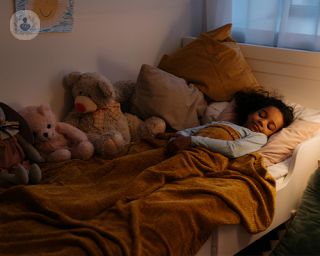

Understanding and managing bedwetting: a guide for parents
By Dr Munir Ahmed
2025-01-14
Bedwetting, also called enuresis, is quite normal for children to do as they are still learning how to control their bladders. When babies are born, they are unable to control their bladders and bowels – rightfully so! – and parents will put them in diapers so that they can “go potty” whenever. But as they start developing communication skills and independent mobility once they’re a little older, between 18 months to three years, they will indicate their readiness to use the toilet themselves. See more
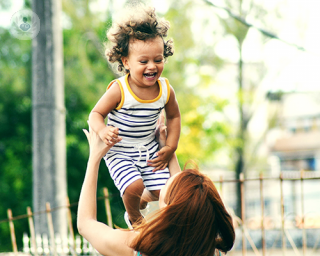

Daytime wetting in children: how can this be resolved?
By Mr Alex Turner
2025-01-13
Day time wetting is an incredibly common condition in children. They usually attain continence by two to three years old, after potty training, where the parents remove the nappy and the child knows when they need to go to the toilet for a wee. There are two groups of children who wet. The first group is children who are dry and then begin wetting again, known as secondary wetting. The second group is children who have never been dry; they can’t get out of nappies. This is referred to as primary wetting. See more
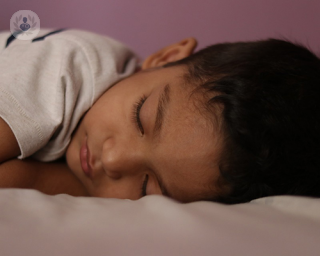

How to stop bedwetting
By Mr Andrew Robb
2025-01-13
How can I stop my child wetting the bed? In the second part of our interview with expert paediatric urologist Mr Andrew Robb, he provides some solutions to bedwetting in children. See more


5 tips to beat persistent wetting in children
By Miss Marie-Klaire Farrugia
2025-01-11
Dr Marie-Klaire Farrugia, consultant paediatric urologist gives some tips to help you if your child is having problems with wetting. See more
Experts in Bedwetting
-
Dr Kishor Tewary
PaediatricsExpert in:
- Bedwetting
- Urinary tract infections in children
- Urinary incontinence
- Urination disorders
- Hydronephrosis
- Vesicoureteral reflux (VUR) (kidney reflux)
-
Dr Rajiv Goonetilleke
PaediatricsExpert in:
- Abdominal pain
- Asthma
- Bedwetting
- Thyroid
- Growth disorders
- Urinary tract infections in children
-
Dr Deborah Zeitlin
PaediatricsExpert in:
- Paediatrics
- Complex care
- Child development
- Bedwetting
- Acute Respiratory Infections
- Feeding the newborn
-
Mr Eskinder Solomon
UrologyExpert in:
- Urinary incontinence
- Bedwetting
- Uroflowmetry
- Overactive bladder
- Urinary tract infection
- Cystitis
-
Dr Nader Elgharably
PaediatricsExpert in:
- Paediatrics
- Newborn physical examination
- Heart murmur in children
- Child allergies
- Chronic cough
- Bedwetting
- See all

The Wellington Hospital - part of HCA Healthcare
The Wellington Hospital - part of HCA Healthcare
Wellington Hospital South Bldg, 8A Wellington Pl, NW8 9LE
No existe teléfono en el centro.
By using the telephone number provided by TOP DOCTORS, you automatically agree to let us use your phone number for statistical and commercial purposes. For further information, read our Privacy Policy
Top Doctors

Alliance Medical Marylebone
Alliance Medical Marylebone
10-11 Bulstrode Place, London. W1U 2HX
No existe teléfono en el centro.
By using the telephone number provided by TOP DOCTORS, you automatically agree to let us use your phone number for statistical and commercial purposes. For further information, read our Privacy Policy
Top Doctors

Spire Little Aston Hospital
Spire Little Aston Hospital
Little Aston Hall Drive, Sutton Coldfield, B74 3UP
No existe teléfono en el centro.
By using the telephone number provided by TOP DOCTORS, you automatically agree to let us use your phone number for statistical and commercial purposes. For further information, read our Privacy Policy
Top Doctors
-
The Wellington Hospital - part of HCA Healthcare
Wellington Hospital South Bldg, 8A Wellington Pl, NW8 9LE, Central LondonExpert in:
- Digestive
- Cardiology
- Orthopaedic surgery
- Orthopaedic spinal surgery
- Intensive care
- Spine
-
Alliance Medical Marylebone
10-11 Bulstrode Place, London. W1U 2HX, Central LondonExpert in:
- Cardiology
- Diagnostic Imaging
- Ultrasound
- Gastroenterology
- Neurology
- Magnetic resonance
-
Spire Little Aston Hospital
Little Aston Hall Drive, Sutton Coldfield, B74 3UP, Sutton ColdfieldExpert in:
- Bariatric Surgery
- General Surgery
- Orthopaedic surgery
- Robotic Surgery
- Diagnostic Imaging
- Ophthalmology
- See all
- Most viewed diseases, medical tests, and treatments
- Snoring
- Immunotherapy
- Fertility preservation
- Female infertility
- Child nutrition
- Undescended testicle (Cryptorchidism)
- Migraine
- Paediatric rheumatology
- Autoimmune diseases
- Joint pain







